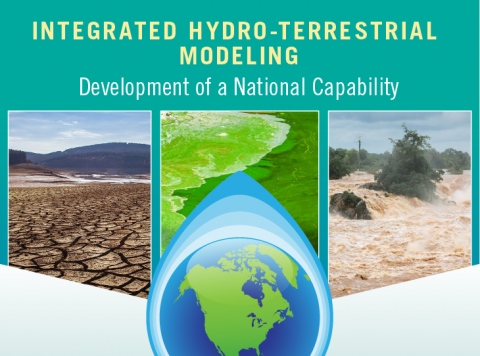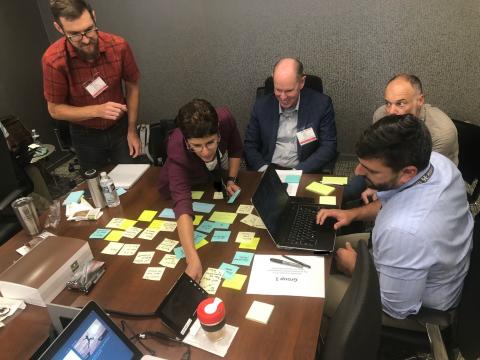Water is one of our most important natural resources and is essential to our national economy and security. Multiple federal government agencies have mission elements that address national needs related to water. Each water-related agency champions a unique science and/or operational mission focused on advancing a portion of the nation’s ability to meet our water-related challenges, often in close collaboration with scientists from the academic community. These diverse mission needs have engendered a rich and extensive base of water-related data and modeling capabilities. While useful for their intended purposes, these capabilities are not well integrated to address complex regional problems and overarching national problems. These major investments by several federal agencies and their scientific partners, however, lay the foundation for an integrated hydro-terrestrial modeling and data infrastructure that will enhance knowledge, understanding, prediction, and management of the nation’s diverse water challenges.
Creating a seamless national hydro-terrestrial modeling and data capability presents an enormous opportunity to advance operations and research leading to more effective water management. Advances are necessary not only in operational tools for forecasting but also in research to identify and resolve knowledge and data gaps that lead to uncertainties in forecast outcomes that are so large that decisions cannot be made based on those forecasts. As such, close coordination across scientific, operational, and resource management communities is required.
To this end, an interagency workshop on “Integrated Hydro-Terrestrial Modeling: Development of a National Capability” was held at the National Science Foundation (NSF) headquarters in Alexandria, Virginia in September 2019, led jointly by the NSF, the U.S. Department of Energy (DOE), and the U.S. Geological Survey (USGS), with broader interagency support provided through an interagency steering committee. This workshop provided a venue to bring together representatives of water-related agencies and their scientific partners (including university researchers) to initiate and refine a vision for national Integrated Hydro-Terrestrial Modeling (IHTM) and data infrastructure and to advance ideas that would promote that vision’s development.
This report documents the workshop activities and outcomes, focused around three national “Priority Water Challenges” that motivate an IHTM capability. Using these challenges as use cases, the workshop attendees identified technical and organizational barriers that have hindered integration of capabilities and proposed near-term and long-term activities needed to overcome those barriers. Workshop participants envisioned a future in which agencies and academic institutions are better aligned and creatively work through effective business and funding practices, thereby enabling IHTM collaborations and partnerships that simultaneously advance the individual missions of water-related agencies, advance scientific understanding, and meet the needs of stakeholders and the Nation. A critical initial step identified at the workshop advocated for multiple agencies to invest resources (leveraging existing research and capabilities) in pilot projects designed around integrated use cases, using flexible and collaborative approaches. Such integrated use cases would not only provide rallying points for initial development and testing of an IHTM capability and build on existing collaborations and capabilities, but would also spur new governance concepts, data standards, and model interoperability solutions required for a national IHTM capability. Such investment would engender each agency having a stake in the process and would lead to some early successes that would subsequently motivate the coordination and evolution of new business and funding practices that would align missions for optimal future impact.
Projects (1)
Multiple federal government agencies have mission elements that address national needs related to water and advance the underlying science. These diverse mission and scientific needs have engendered a large base of water-related data and modeling capabilities that, while useful for their intended...
Datasets
0


